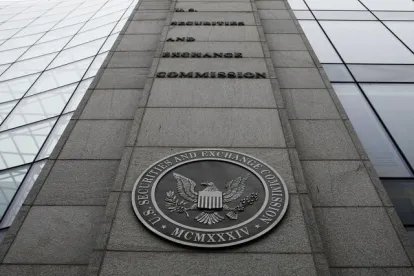In a flurry of activity today, the U.S. SEC’s Strategic Hub for Innovation and Technology (“FinHub”) issued a “Framework for ‘Investment Contract’ Analysis of Digital Assets” and the SEC’s Division of Corporation Finance (“CorpFin”) issued a historic No-Action Letter to Turnkey Jet, Inc. (“TurnKey Jet”) in connection with its offer and sale of digital assets. The Framework doesn’t contain anything substantially new for U.S. securities law practitioners who have been giving guidance to companies regarding digital assets (or utility tokens, security tokens or digital securities depending upon your term of choice) for some time, but serves as a good reminder of the SEC staff’s thought process in this area for those new to the space.
And in case you missed Footnote 1 to the Framework, Bill Hinman (SEC Director of CorpFin) and Valerie Szczepanik (SEC Senior Advisor for Digital Assets and Innovation) released a Statement on the Framework reminding everyone that the SEC has not approved or disapproved of the content and it is not a rule or regulation. These types of Frameworks are often how the internal staff at the SEC get the ball rolling on regulatory innovations (recall the legendary Project Aircraft Carrier of 1998). The Framework applies the factors set forth in the U.S. Supreme Court’s Howey case to digital assets, without going further. Therefore, it’s worth questioning whether Director Hinman has lost the argument internally at the SEC that he posited in his June 2018 Digital Asset Transactions remarks, in which he included “does application of the Securities Act protections make sense” in his list of considerations for assessing whether a digital asset offering is an investment contract.
And we are celebrating history today – the SEC staff issued its first No-Action Letter on digital assets and stated that it would not recommend an enforcement action if TurnKey Jet offers and sells blockchain-based digital assets in the form of “tokenized” jet cards. Don’t get too excited kids, as the letter is very limited in scope, and in the eyes of some, may be regarded as narrowing of prior guidance. A very restricting element to the analysis is that the tokens cannot be transferable outside TurnKey Jet’s platform. So, we can do more with our “AirMile Rewards” earned from a credit card company than the SEC staff permits with TurnKey Jet’s tokens. Given that most of the interesting use cases of digital assets cannot satisfy the platform non-transferability requirement of the TurnKey Jet No-Action Letter, there is more work to do here. But let us all celebrate a little bit with the knowledge that 5-10 years from now this No-Action Letter likely will be seen as the first baby-step towards a progression of SEC No-Action Letters and SEC rulemaking to support Blockchain technology innovation. Keep them coming SEC FinHub!



 />i
/>i

